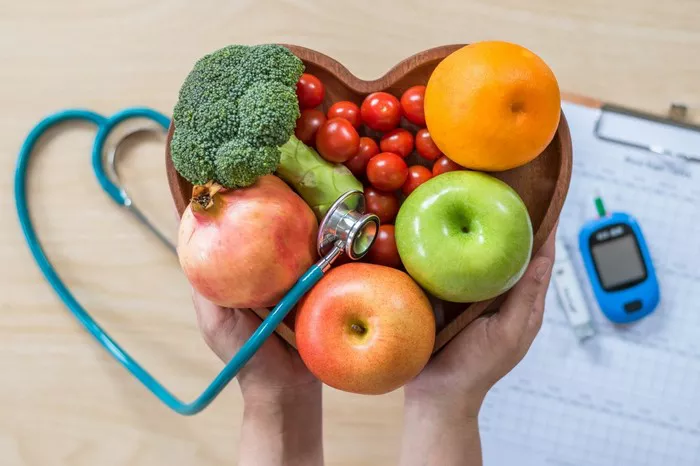Diabetes management often involves careful consideration of diet choices, including the selection of fruits. While fruits are generally considered healthy due to their vitamins, minerals, and fiber content, some fruits may impact blood sugar levels more significantly than others. This article explores which fruits individuals with diabetes should avoid, taking into account factors such as glycemic index, sugar content, and overall nutritional impact.
Understanding Diabetes and Dietary Choices
Impact of Diet on Blood Sugar
Diet plays a crucial role in managing diabetes, as certain foods can cause rapid increases in blood glucose levels. For individuals with diabetes, it’s essential to choose foods that help maintain stable blood sugar levels throughout the day.
Role of Fruits in a Diabetic Diet
Fruits are natural sources of vitamins, minerals, antioxidants, and dietary fiber. They can be part of a healthy diet for individuals with diabetes, but the type and quantity of fruits consumed should be carefully considered.
Factors to Consider When Choosing Fruits
Glycemic Index (GI)
The glycemic index ranks foods based on how quickly they raise blood glucose levels compared to pure glucose. Foods with a high GI (70 or above) can cause a rapid spike in blood sugar levels, which may be undesirable for individuals with diabetes.
Sugar Content
Fruits contain natural sugars, primarily fructose. While natural sugars are generally healthier than added sugars, the total sugar content of fruits can vary significantly, influencing their impact on blood glucose levels.
Fiber Content
Dietary fiber helps slow down the absorption of sugar into the bloodstream, which can help stabilize blood sugar levels. Fruits high in fiber are generally more favorable choices for individuals with diabetes.
Nutritional Value
Apart from sugars and fiber, fruits provide essential nutrients such as vitamins (like vitamin C and vitamin A), minerals (like potassium and magnesium), and antioxidants, which contribute to overall health and well-being.
Fruits to Avoid for Diabetes Management
Based on their glycemic index, sugar content, and impact on blood sugar levels, here are some fruits that individuals with diabetes may consider avoiding or consuming in moderation:
1. Watermelon
Watermelon has a high glycemic index (GI) despite being low in calories. It contains natural sugars and can cause a rapid increase in blood glucose levels, especially when consumed in large quantities.
2. Pineapple
Pineapple is another fruit with a high GI. It contains natural sugars, including sucrose, which can lead to a quick rise in blood sugar levels if eaten in large amounts.
3. Mango
Mangoes are delicious but can be high in natural sugars. They have a moderate to high GI, depending on their ripeness, and can impact blood glucose levels significantly.
4. Grapes
Grapes, especially when consumed in large quantities, can cause spikes in blood sugar levels due to their high sugar content and moderate GI.
5. Bananas
Bananas are nutrient-dense but have a higher sugar content compared to many other fruits. Ripe bananas have a higher GI, contributing to faster blood sugar elevation.
6. Cherries
Cherries, while rich in antioxidants and fiber, also contain natural sugars that can affect blood glucose levels, particularly if consumed in large servings.
7. Dried Fruits
Dried fruits like raisins, dates, and prunes are concentrated sources of sugars. They have a high GI and can cause rapid spikes in blood sugar levels despite their fiber content.
8. Fruit Juices
Fruit juices, even if they are 100% pure and unsweetened, can have a high sugar content and lack the fiber found in whole fruits. They are quickly absorbed, leading to rapid increases in blood glucose levels.
Guidelines for Including Fruits in a Diabetic Diet
Moderation is Key
While some fruits are best avoided or limited, others can be enjoyed in moderation as part of a balanced diabetic diet. It’s essential to consider portion sizes and monitor blood glucose responses after consuming fruits.
Choose Low-Glycemic Options
Opt for fruits with a low to moderate glycemic index (GI) whenever possible. These include berries (such as strawberries, blueberries, and raspberries), apples, pears, and citrus fruits (like oranges and grapefruits).
Pair Fruits with Protein or Healthy Fats
Combining fruits with protein or healthy fats can help slow down the absorption of sugars into the bloodstream. For example, pair an apple with a handful of nuts or have berries with Greek yogurt.
Focus on Whole Fruits
Whole fruits, especially those with edible skins or peels, tend to have higher fiber content compared to fruit juices or processed fruit products. Fiber helps regulate blood sugar levels and supports digestive health.
Consider Individual Responses
Individual responses to fruits can vary. Some people with diabetes may tolerate certain fruits better than others. It’s advisable to monitor blood glucose levels regularly and adjust fruit consumption based on personal health goals and recommendations from healthcare providers.
See also: How Many Eggs Should a Diabetic Eat for Breakfast?
Conclusion
In conclusion, while fruits are nutritious and beneficial for overall health, individuals with diabetes should be mindful of their choices to manage blood sugar levels effectively. Fruits with high glycemic index values or significant sugar content, such as watermelon, pineapple, and dried fruits, should generally be avoided or consumed in limited quantities. Instead, opt for fruits with lower glycemic index values and higher fiber content, such as berries, apples, and citrus fruits. By making informed choices and balancing fruit intake with other components of a diabetic diet, individuals can enjoy the health benefits of fruits while supporting their diabetes management goals. Always consult with a healthcare professional or registered dietitian for personalized dietary recommendations tailored to individual health needs and preferences.
Related topics:
What Should I Eat If I Have Diabetes


























